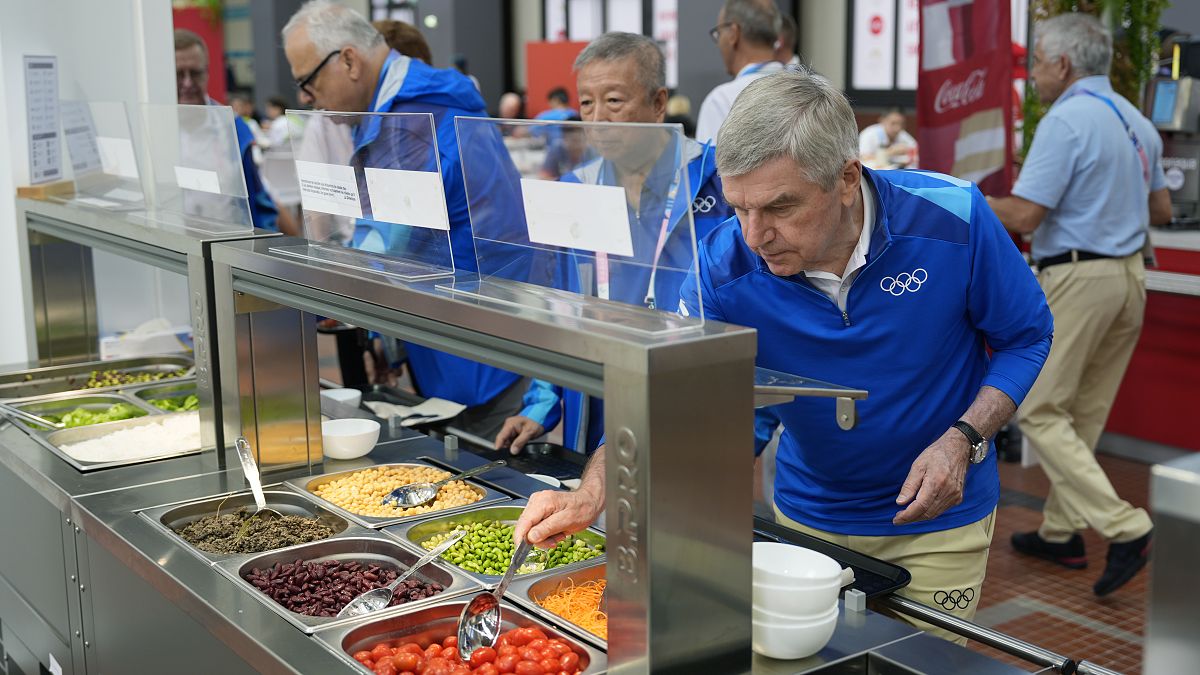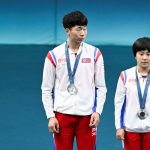The Paris Olympics have caused controversy in Brussels due to complaints from athletes about the lack of animal protein-rich diets. The opening ceremony featured an alleged ‘Last Supper’ parody that raised eyebrows, but it was the actual food served at the Olympic Village that sparked a debate. The German men’s hockey team criticized the food as a “disaster,” while British athletes had to fly in an additional chef to address the shortfall of meat supply. The CEO of the UK Olympic Association, Andy Anson, expressed concern about the lack of protein in the menus, particularly chicken and eggs, as well as the serving of raw meat.
The Paris 2024 Food Vision document aimed to provide 13 million meals to athletes during the Games featuring locally sourced, seasonal food with reduced animal protein to lower the carbon footprint compared to previous Olympics. Following the complaints from athletes, adjustments were announced by Étienne Thobois, CEO of the Paris 2024 Games. This included an increase in animal protein, with 700 kilos of eggs and a ton of meat being added to meet the demands of athletes. Sodexo Live, the French company responsible for catering, temporarily shifted from its initial eco-friendly commitments to meet the athletes’ needs for popular products like eggs and grilled meats.
In response to the food issues at the Olympics, Brussels also reacted due to the EU’s promotion of plant-based diets under its Farm to Fork strategy. Christiane Lambert, president of the EU farmers’ lobby Copa Cogeca, criticized the shift away from animal protein on social media, defending Europe’s livestock sector. She argued that prescribers of these diets underestimated the need for high-protein foods from animal sources to help athletes recover and meet their dietary needs. On the other hand, the European Vegetarian Union (EVU) welcomed the emphasis on plant-based options and local sourcing in the Paris 2024 Food Vision.
The EVU’s policy manager, Rafael Pinto, highlighted scientific evidence supporting plant-based diets for athletic performance and muscle recovery without disadvantages. He emphasized the importance of proper protein and carbohydrate intake, as well as educating athletes and their teams about plant-based alternatives. Pinto noted that the myth of athletes requiring high animal protein diets has been debunked by science and argued that those perpetuating it in the Paris Olympics were not basing their arguments on scientific evidence.
Overall, the controversy surrounding the lack of animal protein-rich diets at the Paris Olympics has sparked debates both within the Games and in Brussels. While adjustments have been made to increase animal protein in response to athletes’ complaints, the issue has highlighted the ongoing conversation around promoting plant-based diets and reducing the carbon footprint of major sporting events. Both sides of the debate have valid points, with athletes’ dietary needs and the environmental impact of food choices being key considerations for future Olympic Games.











